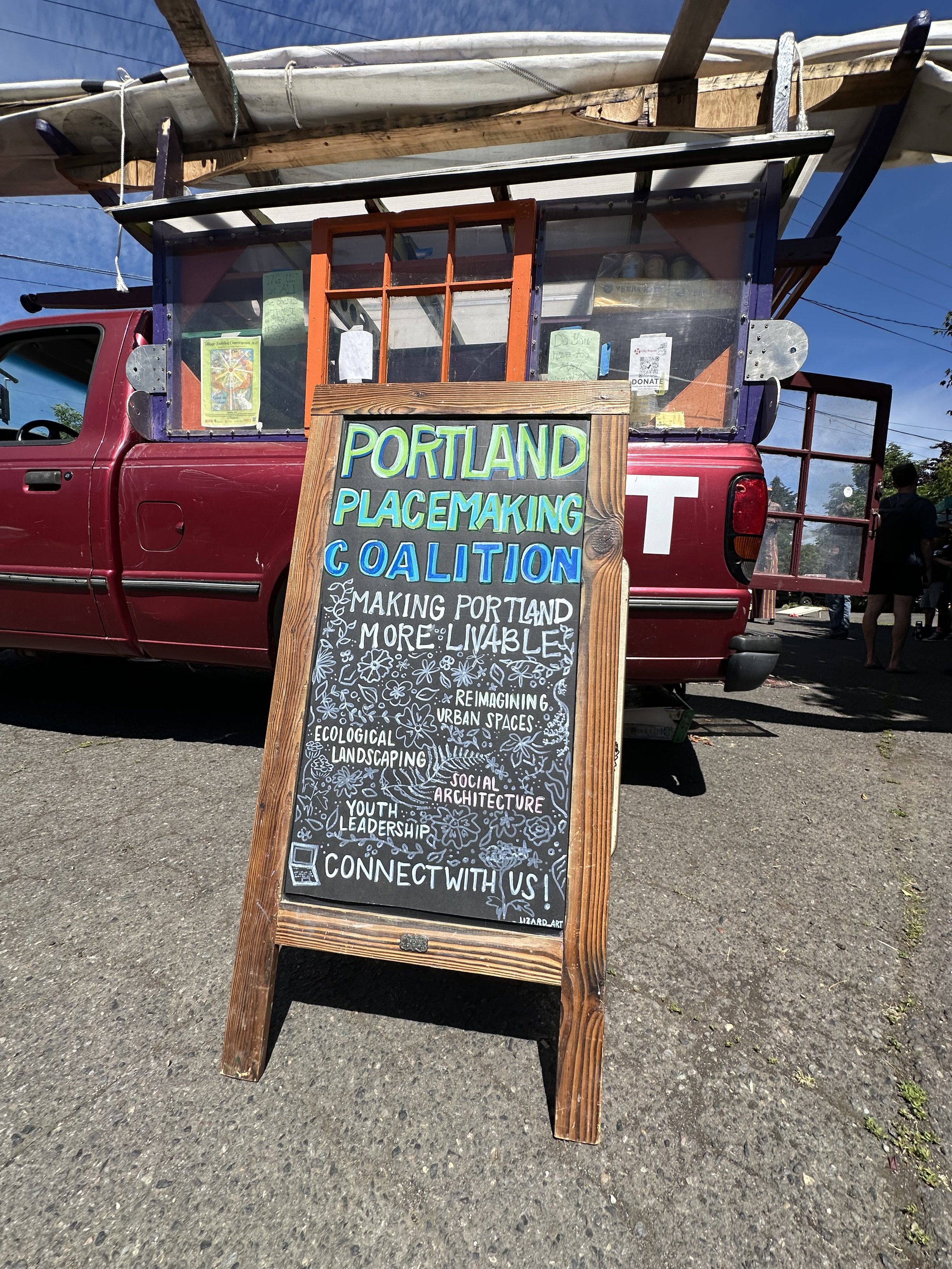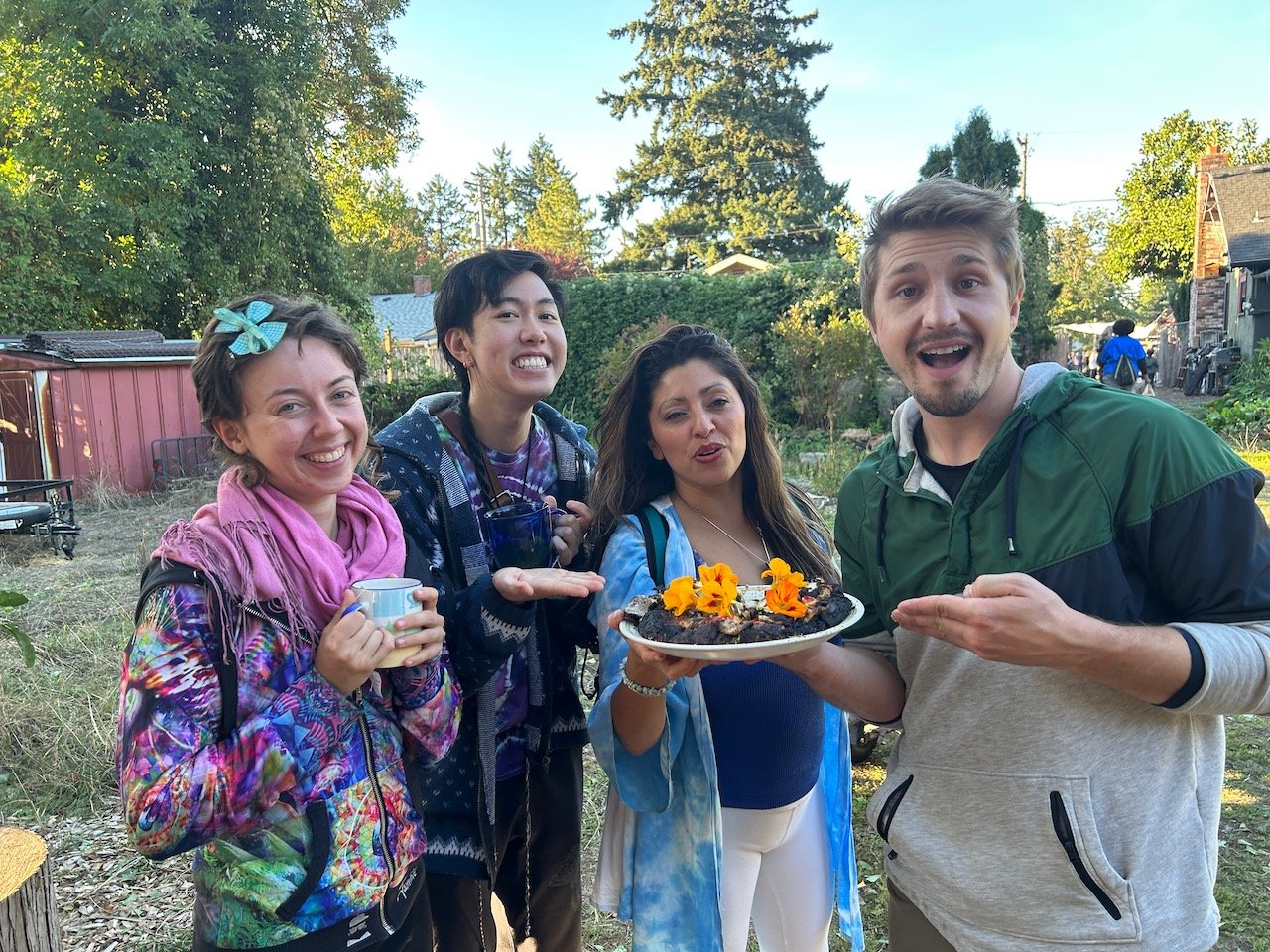
Reimagining Urban Spaces
Portland Placemaking Coalition works with community members to reclaim and reimagine underutilized public spaces to create places for people to gather, build connections and create cohesion. By leveraging the wisdom of the neighbors we can together create community-led, neighborhood-specific solutions such as public plazas, kiosks, and public art that serve as a source of community pride.
Related Services include:
Community Plaza Design
Intersection and sidewalk paintings
Installation of Kiosks, benches, public art
Popup events and programming
Community Engagement through Listening Sessions and Community Design Charettes
The Challenge
When our cities and towns were constructed, many neighborhoods weren’t built to include safe, welcoming public spaces. Places that create an opportunity for random meetings, relaxation, or celebration such as plazas, town squares, community centers, parks, and gardens contribute to community health and well-being of a neighborhood; whether socially, economically, culturally, or environmentally.
The absence of these collective meeting places can contribute to feelings of disconnection, loneliness, and the degradation of social cohesion necessary for community resiliency.
Improvements to public spaces have traditionally been funded by city projects and other top-down initiatives. In many cases, the community typically inherits the outcome of a planning project completed by a city authority who lacks knowledge and insight into the unique needs of a community.
Our Approach
For the community, By the community
By facilitating grassroots community-led design, we can leverage the wisdom of the community to create targeted neighborhood-specific solutions. Our neighbors are the experts- they know the neighborhood best and help identify areas of need including violence hotspots as well as unique opportunities to fulfil the needs of the community.
In addition, design solutions are shaped by well-established frameworks such as human-centered design, CPTED (Crime Prevention Through Environmental Design), and regenerative greening best practices (?).



